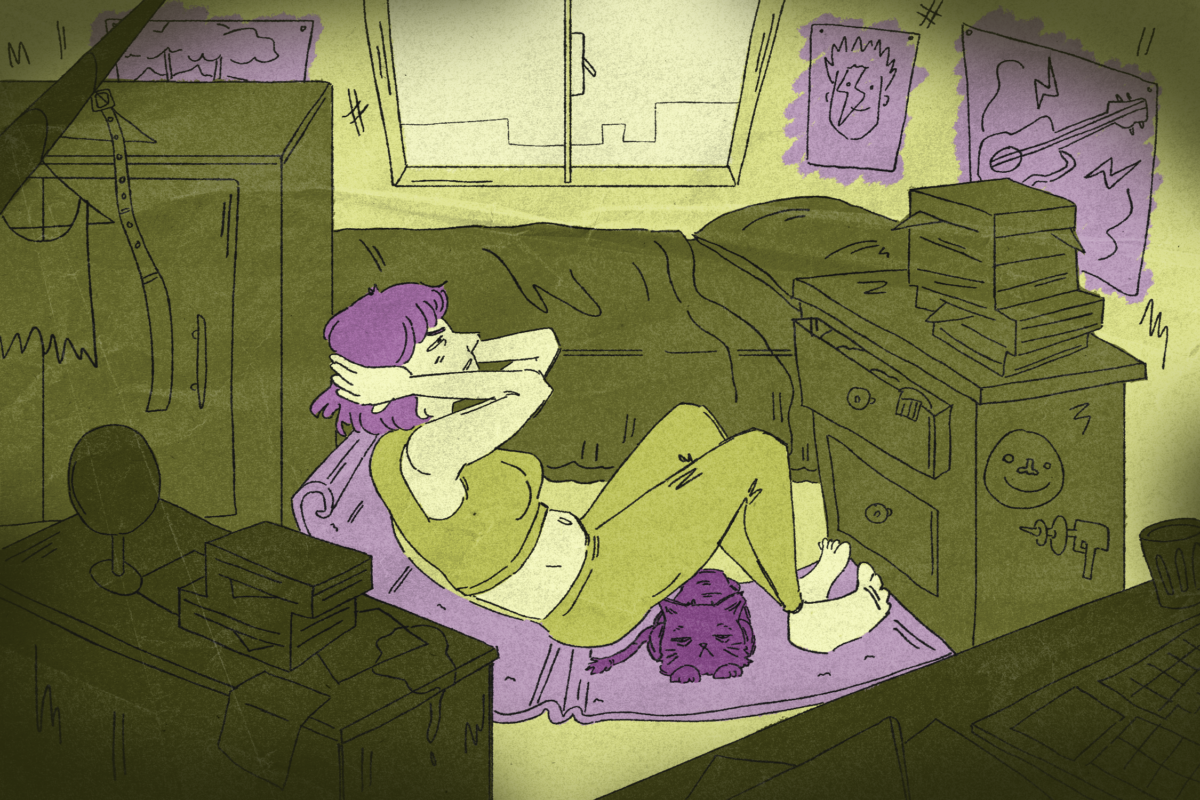“Something is better than nothing,” experts say
It’s the final sprint, the home stretch, the end of the third period: it’s exam season, and it comes with an overwhelming amount of stress and an extremely compact schedule.
However, to navigate this stress, your greatest ally could very well be physical activity. Erin Goldstein, course instructor in the department of applied human sciences and education at Concordia, emphasized how exercise complements studying.
“When you exercise, your body releases endorphins,” Goldstein said. “We know that exercise helps you concentrate, helps with your memory, helps with your sleep.”
Starting an exercise routine in the middle of a time crunch can seem daunting, but you need less physical activity than you think to get the stress release. Dr. Simon Bacon, professor in the department of applied health, kinesiology and physiology, said that going from nothing to something brings the biggest benefits.
“Just the action of doing something, doing some physical activity is where you get the most benefit,” Bacon said. “Then, the more you can layer on top of that, the better off you’re going to be.”
“If you’re someone that’s currently doing nothing, even just doing a little bit to start is so beneficial for you,” added Goldstein.
Both Goldstein and Bacon are aware of the lack of time that the end of the semester brings. They proposed ways to fit physical activity into your current routine.
Bacon strongly suggests breaking up your next study session with light physical activity.
“If you’ve been sitting at the computer for an hour, getting up and walking two minutes can actually impact a whole bunch of things physiologically that indirectly we’ve seen is related to stress,” he said. “Small things count.”
Along the same lines, he encouraged students who have classes on upper floors to climb a few flights of stairs on the way.
“Oftentimes, having small little tweaks is manageable and doesn’t create additional strain,” he said. “You don’t want to be adding to the stress in certain circumstances.”
Goldstein spoke on the upcoming spring weather, which will be ideal for short walks in-between study sessions. Otherwise, she mentioned the panoply of guided exercise routines that exist on YouTube. Most importantly, she emphasized the importance of remaining realistic.
“Starting smaller is always better because you’re more realistic and you’re more able to crush that goal,” she said. “You feel really good about it and motivated to go for more.”
Bacon added that students who are already fit and have a set exercise routine, when put under a stressful situation, have a lesser reaction.
“Regular physical activity ahead of time is going to give you some degree of protection in an acute stressful situation,” he explained.
Nonetheless, he said that you shouldn’t add to your current amounts of stress by worrying about keeping a strict exercise schedule.
“In a short-term situation [of stress], doing the thing that’s going to give you the greatest peace of mind is going to be predominant,” he said. “If it’s going to stress you out more to go to the gym than it is to sit down to do that studying, do the study.”
Goldstein also noted that, on top of physical activity, having a good sleep schedule and good nutrition is crucial. She recommends seven to nine hours of sleep and meal-prepping for the following week.
“Trying to stay away from processed foods, trying to eat whole grains, fruits and vegetables, lean proteins, plant proteins, those are going to be really beneficial to help with mood,” she explained.
Now, once you’ve aced your exams and reduced your stress using these tips, don’t forget to congratulate yourself and allow yourself to relax. Then, consider implementing physical activity into your regular routine. But remember, the key is to be realistic and progressive.
